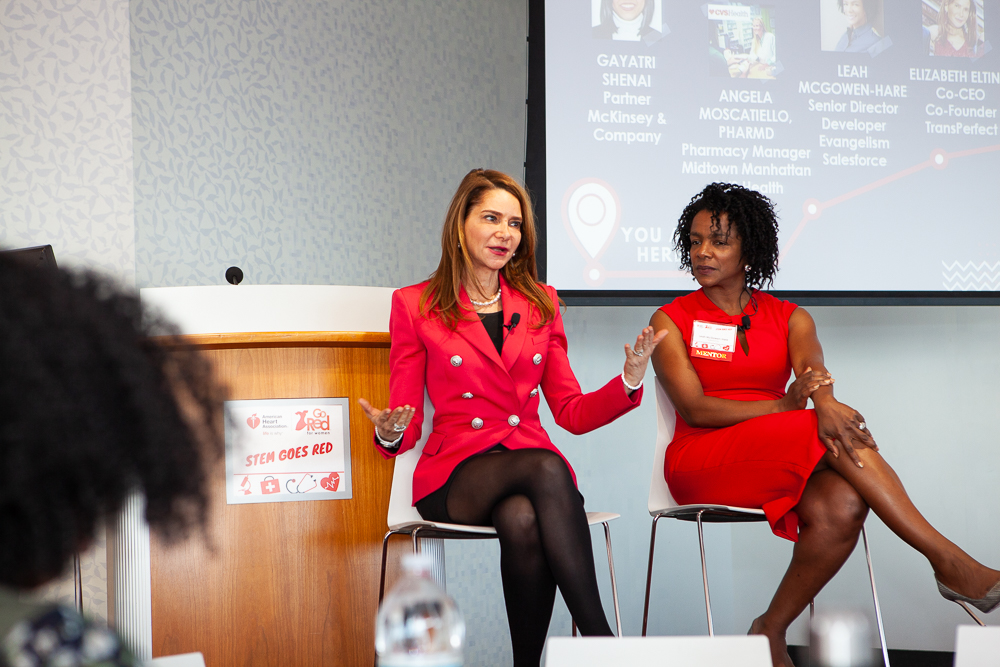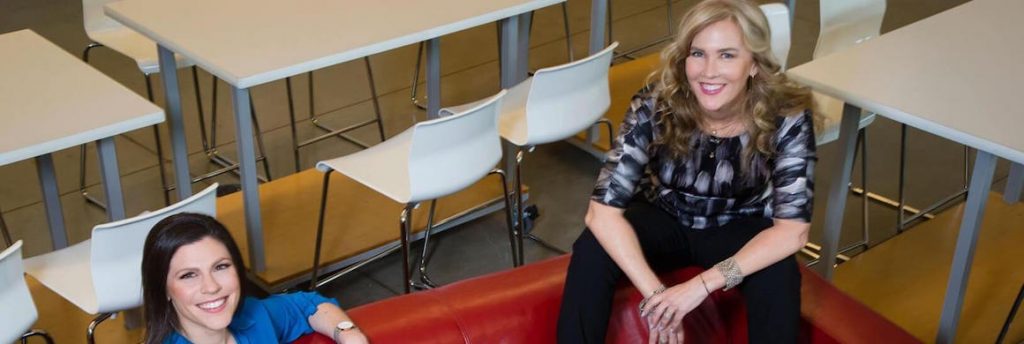News Roundup – Pepperdine Professor Talks Nostalgia TV Trends on NPR, and More

Let’s take a look at some of the biggest stories from this week, including a Pepperdine professor discussing the allure of nostalgia TV, and more.
NPR Podcast Invites Cristel Antonia Russell to Discuss Nostalgia TV – Pepperdine Graziadio Newsroom
Dr. Cristel Antonia Russell, Professor of Marketing at Pepperdine Graziadio School of Management recently spoke on the power of nostalgia TV on the NPR podcast On Point.
Along with Eric Deggans, NPR’s television critic, Dr. Russell discussed the phenomenon of the wide popularity of all things 1990s in current culture. A major topic of Russell’s research is the reasons behind why people tend to consume and re-consume certain pieces of pop culture. Take Friends, for instance, the rights of which was recently purchased by TimeWarner Media for $125 million. There has been a massive resurgence in the last five years or so of Ross, Rachel and the gang’s popularity.
Russell says, “Twenty-five years is a huge chunk of time to anyone. Nostalgia is a double-edged sword where a part of you wants to go back to these earlier times but a part of you is glad you are no longer an 18-year-old watching Friends. It allows people to reflect and realize how they have grown.”
For more on Dr. Russell, read here, and to download the On Point podcast about the nostalgia TV revival, visit NPR or listen below.
Dean Amy Hillman Drives an Unprecedented Year of Giving – ASU Carey News
Arizona State University’s W. P. Carey School of Business, led by Dean Amy Hillman, reached an unprecedented fundraising goal this year.
A $25 million donation from the W. P. Carey Foundation kicked off the $50 million campaign, and overall the school raised $43.7 million in fiscal year 2018-19. Alumni and current students helped to round out the gifts, with 615 individual donations from them and other private supporters. In all, alumni gave an impressive $11.7 million.

Hillman says of the campaign, “Of course what we do at W. P. Carey is business, but I always practice that ‘business is personal … What donors share with us, no matter the gift is about the people who are impacted through a scholarship, research, or career opportunity.”
The gifts came at a welcome time, as the state of Arizona has reduced funding for higher education in recent years. The money from the campaign will help to improve student resources, enhance research, and fund scholarships. For more on Dean Hillman and the fundraising campaign, read here.
‘Crazy Rich Asians’ Writer’s Dilemma Illustrates How Hollywood Pay Gap is Alive and Well – Kellogg in the News
Nancy Qian, Professor of Managerial Economics & Decision Sciences at Northwestern University’s Kellogg School of Management recently weighed in for an article in the Chicago Tribune on the massive pay gap in Hollywood for non-white writers and actors.
The most recent event that prompted this discussion was the departure of Adele Lim, one of the screenwriters for ‘Crazy Rich Asians’ from the film’s sequel. Her white male counterpart was offered considerably more for his contribution to the sequel’s script—nearly a million dollars, compared to Lim’s offer of $110,000.
While a comment in The Hollywood Reporter claimed that Lim’s offer was based solely upon her experience and past accomplishments, her supporters believe otherwise. Professor Qian says:
“The Warner Bros. response that they have a formula for determining pay seems like an excuse, since they can always build in more components to the formula to give it more flexibility, such as take into account expertise on the subject, the number of other people with similar expertise, the success of the last project, and the evaluation from co-workers.”
“Every situation is different,” she adds. “But it wouldn’t be crazy to see this as Lim getting hit by two forces—on average, for the same level education and work experience, 1) women get paid less than men and 2) Asians in the U.S. get paid less than Caucasians. The question of why is subject to debate.”
Read here for the full Chicago Tribune article.
NYU Stern Receives $5 Million Gift from Alumna Entrepreneur Elizabeth Elting (MBA ’92) to Support the Advancement of Women in Business – NYU Stern News & Events
NYU Stern alum Elizabeth Elting, founder of translation firm Transperfect, recently donated $5 million to the school with the goal of nurturing Stern’s female entrepreneurs.
The gift, which is the largest ever from a woman entrepreneur in the school’s history, will fund Elizabeth Elting Women’s Leadership Fellowships for a total of forty female MBA students. Students who demonstrate both academic merit and the desire to build their own businesses will benefit from the fellowship.

“Starting my own business is the best and most rewarding decision I ever made for my life,” Elting says. “It gave me the resources I needed to provide for my family and influence the world for the better. That’s why I’m so excited to provide this gift to NYU Stern. This money will not only make Stern accessible to a greater number of ambitious young women eager to create their own futures, but will also help the best and brightest launch new enterprises and carry out visions that could transform the world.”
You can read more on Elting and the fellowship here.
Avolio Ranked #2 Most Influential Researcher in Leadership, #3 in Organizational Behavior – Foster School of Business News & Events
Bruce Avolio, Professor of Management at the University of Washington Foster School of Business, was recently named one of the globe’s foremost thinkers on leadership and organizational development by The Leadership Quarterly.
The publication named Avolio the number one scholar in the world at forming networks in the field of leadership research, and second best in productivity and influence of his leadership studies.
Another industry publication, the Academy of Management Learning and Education, lists Avolio the third most influential author since its inception. Avolio’s wide list of accomplishments include the 2013 Eminent Leadership Scholar Award from the Network of Leadership Scholars in the Academy of Management, the American Psychological Society, the American Psychological Association, and fellowships in the Academy of Management, and the Society for Industrial & Organizational Psychology.
Read more on Avolio and his research here.
MBA Jobs: Business Development Manager

One fact of life in any business, large or small, is that a strategic vision for future growth is a necessity. Equally important is translating that vision into a workable plan, which is the primary focus of the Business Development Manager. The combination of lead generation, targeting the most profitable markets, and perhaps most importantly, making and keeping healthy client relationship are the hallmarks of this role. An MBA with this specialty affords a host of opportunities for jobs in an impressive array of industries. Here, we will take a look at some of the profession’s required skills, along with salary ranges, specialty programs, and a brief summary of some current job opportunities.
Business Development (BD), briefly, is the creation and management of new leads and relationships in order to achieve sales targets. Strong communication skills are an obvious foundation in any career, but in BD it is imperative that one can express ideas to a wide variety of audiences at all levels of business. Acquiring new clients requires the ability to put oneself in another’s shoes, as opposed to just delivering a sales pitch. Other necessary BD skills include
- Negotiation
- Data analysis
- Accounting and forecasting
Business Development Manager Salary
According to Glassdoor data, the average salary for a Business Development Manager in the U.S. is $77,444 per year, regardless of degree. Typically, the salary range is from $40,000 to $135,000.
An important aspect of a BD to consider are the long and unpredictable hours. According to one Indeed.com user describing the role:
“If you are not the type of person who is willing to work for and undetermined amount of hours … this is not the job for you.” On the other hand, the long hours often result in large payoffs, including bonuses for top performers.
Another BD notes, “My current position primarily entails hunting new prospects … I learn [a lot] by dealing with various business model scenarios.”
Getting Started
A bachelor’s degree that includes studies in finance, sales, marketing, business administration, or economics is a great place to begin for a future in business development. Studies in these areas, along with organizational and consumer behavior, supplement the “numbers” side of a well rounded education, as a large part of the BD profession involves predicting the movements of trends, markets, and individuals.
University of California, Berkeley Haas School of Business
An MBA with a focus in strategy sets one apart from other applicants. Many of these degrees have an international focus. Berkeley Haas, for instance, offers the International Business Development program for MBAs. With the guidance of mentors, students work with globally based clients to help them achieve strategic development goals.

Few business schools effectively combine strategy and international business education quite like the Berkeley Haas School of Business.
University of Pittsburgh’s Katz School of Business
The University of Pittsburgh’s Katz School of Business offers the Two Year MBA with a focus in strategy. This focus trains students for “helping a corporation design a path to growth and profitability amidst competition and constant change. The strategic planner’s role consists of helping the organization to gather, analyze, and organize information.”
University of Pennsylvania Wharton School
The Wharton School’s MBA focus in strategic management is geared toward students with sights set on consulting and/or emerging market business developments. Students choose from a selection of courses, such as Strategy and Competitive Advantage, Strategic Implementation, Entrepreneurship Innovation, and Change & Entrepreneurship.
Duke University Fuqua School of Business
Fuqua School of Business at Duke offers the strategy focus as well, with the goal of training MBAs to gain insight on the question: “Why do some firms consistently outperform others?” This concentration requires students to choose from both advanced strategy and advanced analytical courses.
Pace University Lubin School of Business
The Lubin School of Business at Pace University’s MBA with a focus in strategic management provides a well rounded approach to training future managers, with special focus in areas of Strategic Thinking, Long and Short Term Planning, and Research.
Current Business Development Manager Openings
Among the companies currently hiring for a Business Development Manager are Amazon in New York City, Glaxo Smith Kline in Upper Providence, PA, and Verizon in New York City and New Jersey. Other firms looking for Business Development Management positions are KPMG, Microsoft, and American Express.
Chicago News: Northwestern on Bitcoin, Notre Dame Explores Psychopathy and More

Let’s explore some of the most interesting stories that have emerged from Chicago business schools this week.
New Cryptocurrencies, Same Old Problems – Kellogg Insight
Following Bitcoin’s record high $19,511 BPI at the end of 2017, which has already begun its slow steady decline (its BPI is around $10,800 as of Feb 19), folks outside the standard-issue Silk Road users and modern-day gold prospectors have begun to openly (and loudly) question whether we’re due for a global cryptocurrency takeover. Northwestern University Kellogg School of Management professor Sarit Markovich advises eager beavers to slow their rolls:
“There are certainly huge advantages to blockchain technology, especially when it comes to cross-border transactions. But I doubt we’re going to reach the point where decentralized cryptocurrencies replace cash or distributed ledgers replace central banks. There’s too much room for manipulation. Instead, it looks like the real innovation will occur within large institutions, which is not exactly democratization.”
Markovich goes on to note another problem with the current state of Bitcoin, which is the preponderance of “whales” mining the currency. He explains:
“In addition to ‘mining pools,’ there is also the problem of ‘whales:’ roughly 1,000 people own around 40 percent of all bitcoins. As the market continues to rise, there is a risk that some may be in a position to manipulate the market. For example, they could collude in an effort to drive the price of Bitcoin up, then cash out all at once—and perhaps even bet against the futures market.”
Read more about the future of cryptocurrency here.
Psychopaths Tend to Benefit and Flourish Under Abusive Bosses – Mendoza Ideas & News
Got a boss from H-E-double hockey sticks? You’re not alone. But what might make you unique is your ability to stand heat. It turns out some folks actually do quite well under cruel conditions. It also turns out that these folks might have more in common with Richard Ramirez or John Wayne Gacy than they’d care to admit, according to a new study by Notre Dame Mendoza College of Business assistant professor of management Charlice Hurst:
“We found that primary psychopaths benefit under abusive supervisors. Relative to their peers low in primary psychopathy, they felt less anger and more engagement and positive emotions under abusive supervisors.” “It may reward and retain exactly the kind of people who are likely to perpetuate abusive cultures,” she says. “Psychopaths thriving under abusive supervisors would be better positioned to get ahead of their peers.”
Hust continues, saying:
“If they have a problem of endemic abuse, like Wells Fargo — where former employees have reported that managers used tactics designed to induce fear and shame in order to achieve unrealistic sales goals—and upper-level managers are either unaware of it or are not taking action, they might notice increasing levels of engagement due to turnover among employees low in primary psychopathy and retention of those high in primary psychopathy. At the extreme, they could end up with a highly engaged workforce of psychopaths.”
Read more about Dr. Hurst’s research, entitled “Are ‘Bad’ Employees Happier Under Bad Bosses? Differing Effects of Abusive Supervision on Low and High Primary Psychopathy Employees,” here.
Financial Compensation Can Distract From Emotional Suffering – Chicago Booth Review
University of Chicago Booth School of Business professor Christopher Hsee, Northwestern professor Xueer Yu and Ph.D. candidate Shirley Zhang recently explored the complex analysis required to compensate victims who suffer grave psychological, physical, and financial duress.
What the trio found, surprisingly, is that psychological and physical distress was often much more rewarding than financial damage. And even mentioning financial damage, coupled with psychological and physical damage, often hindered compensation.
The reason? Financial damage is generally empirical and can be exacted with ease.
“It would be better to say ‘I was so scared that I lost two nights’ sleep’ than to say ‘I was so scared that I lost two nights’ sleep and one day’s work,’” the researchers write. “If the victim mentions one day’s work, the mediator would likely compensate the victim for only her one day’s pay. If the victim does not mention one’s day work, the mediator would likely award more, unless the victim has a high-paying job and the judge is aware of it.”
Read more about their research, recently published in the January issue of Organizational Behavior and Human Decision Processes, here.
New Stanford Study Looks the Effect of the Status Quo Bias

There’s a bias to keep things the way they are, even if things aren’t going well, according to the Stanford Graduate School of Business. But what is the efficacy of the so-called “status quo bias?”
Nobel Prize-winning economist Richard Thaler and Cass Sunstein’s 2008 book Nudge popularized the default effect, which explains that if consumers are offered a “side dish of salad instead of fries,” for instance “then people [will] eat more salad.” In other words: “we tend to stick with what we’re given.”
In new research published in Proceedings of the National Academy of Sciences, Stanford Professor of Management Margaret Neale and Hong Kong University of Science and Technology Professor David Daniels, along with Stanford graduate students Julian Zlatev and Hajin Kim conducted an experiment to put this notion to the test. To their surprise, the experiment revealed that the exact opposite was true.
In the context of a game, “choice architect” attempts to convince a “choice maker” to select one option over the other. However, before the “choice architect” presents any options to the “choice maker,” Zlatev explains that “the choice architect was able to select which option showed up as the default.”
“When we looked across all of the studies, people chose to set the desired option as the default roughly 50 percent of the time.”
This phenomenon, which the researchers dubbed “default neglect” came as a surprise due to the fact that many participants “demonstrated a partial intuitive grasp of reasons why defaults can sway individual choices.”
“If you prompt people about specific reasons why people tend to stick with defaults, then they’re more likely to give you a reasonable answer,” Daniels says. “When left to their own devices, choice architects didn’t seem to spontaneously consider why people might be susceptible to defaults.”
Neale believes that the presence of default neglect exerts an invisible but potent influence on our decisions. “These are small changes in how we present decisions that can dramatically affect the quality of people’s lives, the quality of their communities and the larger world. But we don’t use defaults because we don’t realize in any kind of day-to-day environment how powerful these things are.”
What is the Influence Line? A Stanford GSB alum explains.

Stanford Graduate School of Business alum Maria Lambert, MBA ’12, recently discussed the foundational idea of an “Influence Line“—an exercise in which one judge’s themselves against their peers, finding out who among themselves are the most influential compared to the others. It’s an uncomfortable process, but one, Lambert believes, can break huge barriers in producing positive feedback.
In a recent Quartz Work article, Lambert explains that the process of privately ranking peers is something we do constantly—subconsciously or not—but to make that list public requires that we reveal our “true beliefs and own our choices.” As she explains in the article, “to fully know ourselves, we need to know how we’re perceived. And that requires a rare type of honest, in-the-moment feedback that … the Influence Line is designed to elicit.”
The Influence Line exercise also elicits a great deal of internal conflict, as Lambert notes, but it doesn’t end with rankings, which is simply “the catalyst for eliciting unspoken feedback and emotions.” At Stanford, Lambert explained that her group “spent the next several sessions honestly discussing what came up for us during the exercise,” which revealed how much Lambert had left unsaid.
As brutal as the exercise can be, its efficacy has been proven. Lambert devised a “gentler” version of the Influence Line thought experiment for leaders:
- Select 5 to 12 people from your organization or network.
- Rank everyone—including you—from ascending to descending influence and explain each ranking.
- Reflect. What themes emerge?
- Identify unspoken feedback
- Evaluate yourself. Which assumptions support your perceived level of influence?
Lambert offers a few concluding words: “Sharing feedback is not easy; asking for feedback is usually harder. Yet, our growth as leaders comes from uncovering our blind spots, and then with kindness helping others to do the same. Learning comes from stepping out of our comfort zones.”
What Exactly Does Stanford Know About Humor?

There is a rarefied power in humor, or at least there is in certain sections of the business world, and, possibly, comedy. The Stanford Graduate School of Business recently highlighted standout professor Jennifer Aaker and Lecturer Naomi Bagdonas, who created the first ever Humor: Serious Business class at Stanford GSB last spring.
Bagdonas, in an interview with Gentry Magazine, explained that her class is about “the power (and importance) of humor to make and scale positive change in the world, and also to achieve business objectives, build more effective and innovative organizations, cultivate stronger bonds, and capture more lasting memories.”
She elaborates: “Laughter makes us more physically resilient to the tensions and stressors of corporate life. It releases oxytocin, which facilitates social bonding and increases trust. When people laugh together at work, relationships improve, and people feel more valued and trusted, mitigating the effects of these workplace stressors.”
Aaker explains that around the age of 23, many people seem to fall off a “humor cliff” and become more solemn and severe, as if growing into oneself means restricting the possibility of fun.

Jennifer Aaker and Naomi Bagdonas / Photo by Jack Hutch
“We go to work, and all of a sudden we’re very important, and we’re very efficient, and we’re no longer allowed to leave the house in sweatpants or count ice cream as a food group,” she said in the interview.
Aaker adds that many workplaces contribute to this self-perception. It’s no joke that “workplace stress — fueled long hours, job insecurity and lack of work-life balance — [was linked to] at least 120,000 deaths each year and accounts for up to $190 billion in health care costs.”
Bagdonas’ goal is to use the course to “instill a mindset that taking your work seriously doesn’t mean you need to be serious all of the time. In fact, being serious and being humorous can be in service of each other. The right balance of levity and gravity gives power to both.”
Read the whole Gentry Magazine interview with Aaker and Bagdonas here.
